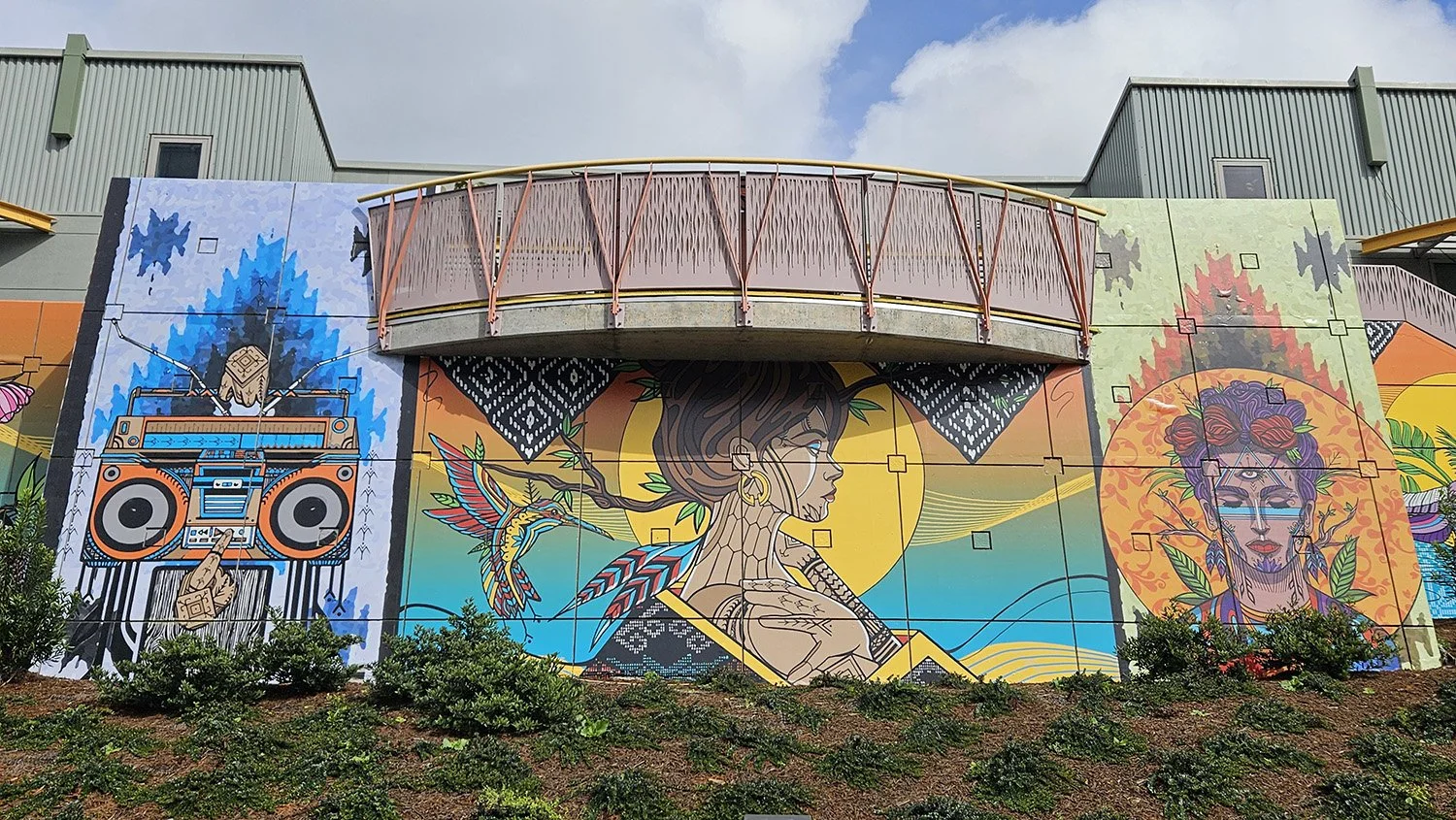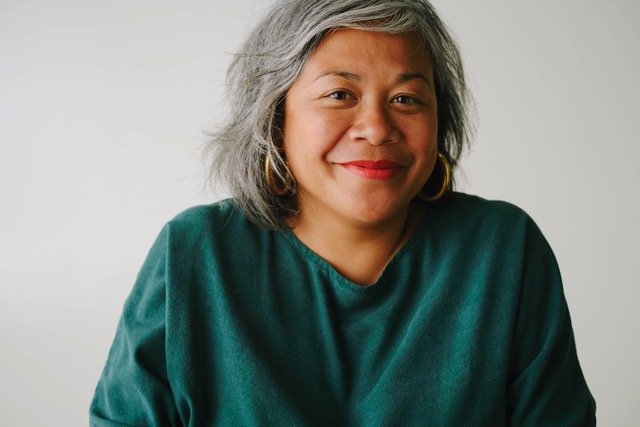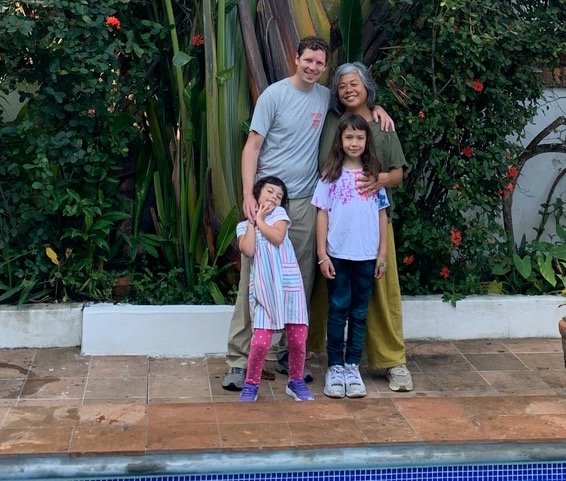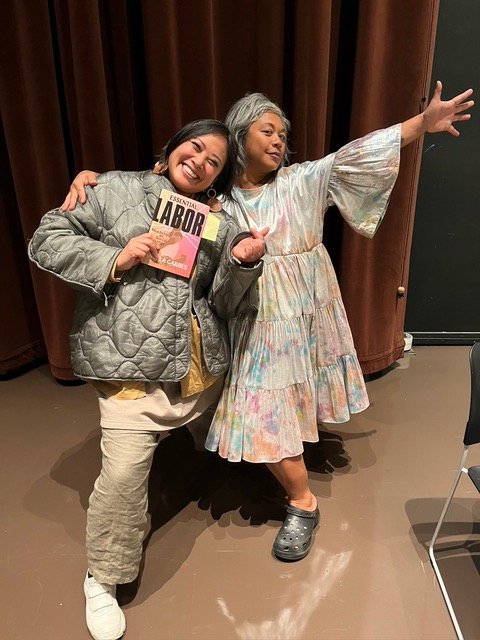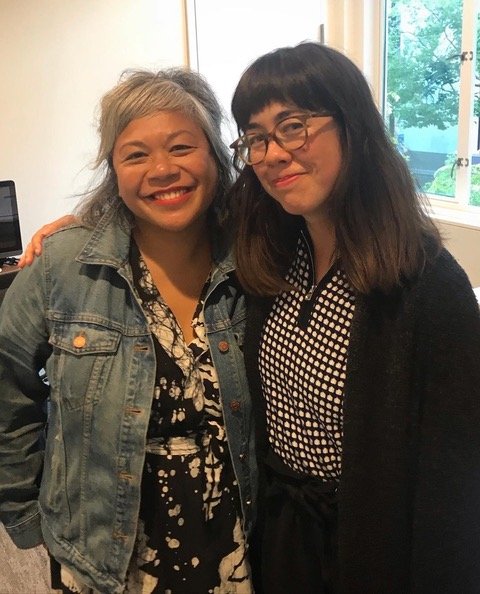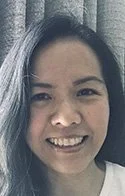Angela Garbes and Her Way with Words
/Angela Garbes is a Seattle-based writer, speaker, and author of “Like a Mother” and “Essential Labor: Mothering as Social Change” (Photo courtesy of Angela Garbes)
These days, one of the measures of success is if something has gone viral, like a photo, video or link that spreads quickly and becomes popular through social media. This is exactly what happened when Angela Garbes wrote the essay, “The More I Learn About Breast Milk, the More Amazed I Am” for Seattle newspaper The Stranger in 2015. At the time, it was the publication’s most read piece in its entire history. In the essay, she discovers why breastmilk is really the best milk for babies and while it is the best, that option is not necessarily available for everyone. There are many factors riding on this choice that range from physical to economic.
Many people resonated with this truth, and Angela used the essay as the jumping off point to write the book, Like a Mother (A Feminist Journey through the Science and Culture of Pregnancy) published by HarperCollins in 2018. Like a Mother touches on the most basic act of life: pregnancy. She approached writing the book with the curiosity of a mother-to-be, voicing out all the questions, going on to research the answers straight from the experts, and sharing her findings in a manner that’s easy to understand. She can explain scientific fact in a conversational manner, throwing in juicy information that draws out reactions like, “Really? I never knew that!” Her writing is engaging and holds your hand through difficult topics like miscarriage and postpartum depression. Her voice is like that of a close friend who has experienced it firsthand and is telling you about it. If you are a mother or soon-to-be-mom, you’ll learn more about your body so that you can choose what’s best for you and diminish feelings of anxiety, guilt, or shame. Even if one isn’t a parent, reading the book nudges us to be less judgmental of a mother’s choices, reminds us to show empathy with everything she is going through, and to provide the care she needs especially after she has performed the superhuman task of giving birth. We often forget that she is also deserving of that care. Like a Mother was an NPR Best Book of the Year (2018) and a finalist for the Washington State Book Award in nonfiction (2019).
In February 2021, Angela wrote another essay, this time for New York Magazine’s The Cut. She called it, “The Numbers Don’t Tell the Whole Story: Unemployment statistics can’t capture the full extent of what women have lost,” based on her experience of caring for her two young daughters during the pandemic. The pandemic forced women to leave their jobs to fulfill their duties at home as caretakers and virtual school facilitators. In doing so, they had to give up their careers, income and benefits, venue for creative expression, professional fulfilment, and possibly live with the stigma that the work that they do is of lesser value. In the essay, she writes, “I have essentially dropped out of the workforce and been absorbed into housework and caring for my children, where there are no wages, no protections, no upward path, just a repetitive circle. I am by no means alone.”
And she wasn’t alone. Once again, the essay went viral and was even tweeted by Massachusetts Senator Elizabeth Warren, advocate of federal funding for universal childcare and paid leave. The timely essay was rich with insight and pointed out the flaws on how our society views care. Angela used this opportunity to expound on the topic further in a new book that served as a graceful extension to Like a Mother.
"Like a Mother” by Angela Garbes was an NPR Best Book of 2018. (Photo by Claire Mercado-Obias)
Essential Labor (Mothering as Social Change) was published early this year (May 2022) and is one of The New Yorker and NPR’s “Best Books of 2022.” It holds in high regard the act of childcare. It takes a deeper look at the current state of caregiving in the US -- how it is undervalued, underpaid, and outsourced to women of color. She couldn’t help but look at it from her family’s immigrant history. In 1971, her parents left the Philippines to begin their life in the U.S., her mother as a nurse and her father as a pathologist. An all too familiar story, for every Filipino knows a kababayan (countryman) working abroad in a caregiving capacity. She concludes, “In many ways, Filipinx people are the care workers of the world.”
“Essential Labor: Mothering as Social Change” is a National Bestseller and among The New Yorker and NPR’s Best Books of 2022. (photo by Claire Mercado-Obias)
As much as caregiving is a weighty subject, she explores its many angles with curiosity, optimistic that solutions are possible, among them: family leave, affordable childcare, and paying mothers (and all people) a basic income. But as we anticipate action, we continue the necessary work of caregiving. Sure, it tests our strength and patience many times, but Angela wants us to reframe caregiving as the most meaningful work that we can do. It sounds idealistic, but isn’t that what we are aiming for? To raise our children the best way we can so that they can add value and make a difference in the world. This very potential makes caregiving highly skilled work, an essential labor indeed.
We got to ask Angela a few questions about her books and the many ways she nurtures her Filipino heritage.
Do you feel that you lost your identity when you became a mother and your identity as a writer during the pandemic? How can you encourage other mothers experiencing these feelings that they too can overcome them?
Angela Garbes (AG): Becoming a mother, I didn't lose my identity so much as my identity changed, became more multi-dimensional, grew to accommodate both the pre-mothering me and the me that mothering birthed and still continues to transform. Having managed to write Essential Labor while doing a tremendous amount of caregiving in the pandemic, I don't feel that I've lost my identity as a writer. In fact, that part of me feels stronger than ever. What I realized through writing the book is that I am and always will be a writer, and that everything in my life--including dormant and fallow periods--is material and part of my creative process. What I would say to mothers who might feel distant from their own creative work is: the work will always be there waiting for you, and you can find your way back to it.
Angela Garbes with her husband Will Pittz and their daughters Ligaya and Noli. (Photo courtesy of Angela Garbes)
After writing your books Like a Mother and Essential Labor, you are now a voice for mothers and immigrants. How do you feel about this?
AG: I feel honored and fortunate. I'm aware that I am just one voice that could never speak for such a diverse and large community, but I do feel a responsibility to represent us in all our complexity, and to listen and be accountable to mothers, immigrant families, and first gen Fil Ams.
In the acknowledgement section of Essential Labor, you give this shoutout: “To every Fil Am and Filipinx writer, for showing and teaching and pushing me to inhabit my body and perspective and helping me write a book I’ve always wanted to write. Who are some of these Fil-Am and Filipinx writers? Can you explain further why Essential Labor was the book you’ve always wanted to write?
AG: So many! Elaine Castillo, Catherine Ceniza Choy, Ligaya Mishan, Michelle Peñaloza, Jenny Odell, Ricco Siasoco, Mia Alvar, Jose Antonio Vargas, Gina Apostol, Grace Talusan, Dujie Tahat, Jen Soriano, Rick Barot, Anthony Paul Ocampo, Jia Tolentino, Daphne Palasi Andreades, and many others.
I didn't set out to write a book rooted so much in my family's immigration story and Filipino American history, which will be surprising to anyone who has read the book and knows how personal and directly tied to my experience as a Filipina American. The book proposal for Essential Labor promised a history of caregiving in America but had no mention of anything Filipino. Then, in early 2021, I encountered a statistic that hit me like a steel bar to the chest and will stay with me forever: Filipina nurses, who are 4% of the nursing workforce in America, were 34% of Covid-related nursing deaths. That one statistic was a lightning bolt for me: it instantly clarified my vision for the book and the need to anchor my telling of the history of caregiving in America--expected or demanded from women of color for free or at poverty wages--in my Filipino American family’s story. It was the best way for me to write how the forces of capitalism, colonization, exploitation, and white supremacy define care work in America. Once I started down the road of interviewing my parents and immersing myself in Fil Am scholarship, I realized how long I've been thinking about, wrestling with, and trying to understand my identity, family origins, and Philippine history--my whole life, basically.
You write a sweet note to your parents at the end of the Essential Labor: “I write in the hopes that we might understand each other as much as we care. Salamat sa inyong pagmamahal at pagtanggap sa akin hindi man tayo magtugma sa pagiisip.” What a great way to honor them! Did writing Essential Labor help you make peace with the choices they made when they raised you in “immigrant survival mode”? It must be hard and healing at the same time. Can you describe this process?
AG: Yes, absolutely! My parents are amazing. We are very different from each other, but their love and support is the greatest gift of my life. Writing this book--naming the ways in which I felt let down by them and the ways I let them down, analyzing our relationship with both generosity and accountability--was a very emotional experience. Your words--"hard and healing at the same time"-- summarize the process, which is very much still ongoing, perfectly. We listen, empathize, misunderstand, and disagree but, above all, we love and accept each other.
You were born and grew up in the US. Was learning about your Filipino identity a conscious effort? How did your parents teach you about your Filipino identity and how do you teach your own mixed-race daughters about theirs?
AG: Learning was--and still is--a conscious effort. As a kid growing up in a rural, mostly white town far from any family, it was my parents' cooking of Filipino dishes--sinigang, pancit, adobo, tinola, lumpia, polvoron, leche flan, apritada, arroz caldo, bulalo--that created my strongest connection with Filipino culture. As for my kids, they both have names tied to the Philippines (Noli and Ligaya), they hear Tagalog and Kapampangan from my parents and we practice Tagalog together, we have visited the Philippines, and we read books about people like Gabriela Silang, Lapu Lapu, and Larry Itliong. They will always know who they are and where they come from.
Angela Garbes’ parents, Archimedes and Josie Garbes. Her daughters Noli and Ligaya call them Apu and Lola. (Photo courtesy of Angela Garbes)
For Essential Labor, your book launch events included a “Pinay All Star Book Tour” where chef Melissa Miranda, restaurateur Genevieve Villamora, writers Ligaya Mishan and Jenny Odell got to interview you. How did this come about and why was it important to discuss Essential Labor with fellow Filipinas?
AG: I am a huge fan of each of these Pinay women and just decided to shoot my shot and ask them to do events with me. I was already friends with Melissa and Genevieve but was happily shocked when Ligaya and Jenn--writers I admire so much and who have influenced my own work--said yes. I think I was emboldened to ask because the cover of my book was designed by a Fil Am artist, Janelle Quibuyen, and I was working with another Filipina, Jessica Gilo, at my publisher. Having the opportunity to work with so many brilliant Pinay women felt like a dream I didn't even know I was allowed to have until a few years ago!
One of the highlights of Angela Garbes' “Essential Labor” book launch was a Pinay All Star Book Tour. Here she is being interviewed by restaurateur Genevieve Villamora in Washington, DC. (Photo courtesy of Angela Garbes)
Angela Garbes with Melissa Miranda, chef-owner of Musang Seattle, during the “Essential Labor” book launch at the Seattle Public Library. (Photo courtesy of Angela Garbes)
Part of Angela Garbes’ Pinay All Star Book Tour for “Essential Labor" was a virtual interview by writer and author Ligaya Mishan. (Photo courtesy of Angela Garbes)
Angela Garbes with artist and writer Jenny Odell who interviewed her during the San Francisco book launch of “Essential Labor.” (Photo courtesy of Angela Garbes)
Another highlight of your Essential Labor book tour was a guest appearance on “The Daily Show with Trevor Noah.” How did this happen and what was the experience was like?
AG: My incredible publicist Yelena Gitlin Nesbit got me booked on The Daily Show and I have to say it was a wildly positive experience. It was clear that Trevor had read the book and his questions were so smart and thoughtful. He is also somehow 100 times more handsome and charming in real life. I saw that he recently left the show and I feel lucky to have been a guest in his last year, and grateful that he values care work and mothering enough to feature it on such a big platform.
In both of her books, Like a Mother and Essential Labor, Angela Garbes always remains hopeful that change is possible. But one can only get there when the discussion is initiated, and the status quo challenged -- something she’s enthusiastically set out to do. Let’s not only join her for the ride; let’s take action, too.
Claire Mercado-Obias is a writer, food stylist, and pastry chef based in New Jersey. She credits her love for food and crafting to her Lola Isabel, Lola Francisca, and Lola Juana.
More articles from Claire Mercado-Obias

